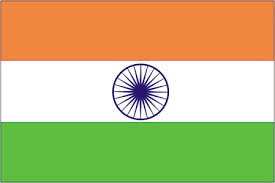India’s Explanation of Vote (PRE VOTING): NUCLEAR WEAPONS Cluster - 78th UNGA First Committee, UNHQ, New York, October 2023
India’s Explanation of Vote (PRE VOTING)
NUCLEAR WEAPONS Cluster
78th UNGA First Committee, UNHQ, New York, October 2023
L.2 The risk of nuclear proliferation in the Middle East
India believes that the focus of this resolution should be limited to the region that it intends to address.
The 1969 Vienna Convention on the Law of Treaties, provides that States are bound by a treaty based on the principle of free consent. The call to those States remaining outside the NPT to accede to it and to accept IAEA safeguards on all their nuclear facilities is at variance with this principle.
India is not a Party to the NPT and is not bound by its outcome documents. This applies also to certain operative paragraphs contained in L.2.
L.12: Treaty banning the production of fissile material for nuclear weapons or other nuclear explosive devices
Without prejudice to the priority that we attach to nuclear disarmament, India has expressed its readiness to support the immediate commencement of negotiations on a Fissile Material Cut-off Treaty (FMCT) in the Conference on Disarmament on the basis of the CD/1299 and the mandate contained therein.
In this context, India has also participated in the work of the Group of Governmental Experts (GGE) on FMCT and the High-level Expert Preparatory Group (HLEPG) on FMCT established pursuant to the UNGA resolutions 67/53 and 71/259.
Our support for FMCT negotiations in the CD is consistent with India’s interest in strengthening the global non-proliferation regime that would add a measure of strategic predictability and a baseline for future global nuclear disarmament efforts.
India, therefore welcomes and will vote in favor of the Resolution L.12 which shares the same objective of immediate commencement of negotiations on an FMCT in the CD on the basis of the document CD/1299 and the mandate contained therein.
On OP2, India does not object to member States engaging in discussions in any forum to facilitate negotiations in the Conference on Disarmament of an FMCT. However, India would like to reiterate its position that the Conference on Disarmament is the most appropriate and formal forum for negotiations of an FMCT.
On OP3, and to a moratorium, India believes that a moratorium on the production of fissile materials for nuclear weapons or nuclear explosive devices, cannot be a substitute for an FMCT. A moratorium by its very nature is only voluntary, reversible, and not verifiable, which is unlike an FMCT which will impose a treaty obligation and will be verifiable and irreversible.
Universal and non-discriminatory Transparency and Confidence Building Measures can be useful complements to a legally binding instrument. They cannot however be a substitute for such an instrument and should only be considered within the process of negotiations leading to such an instrument. Consideration of TCBMs as stand-alone measures will also further delay the commencement of negotiations of a FMCT.
Finally, as to the reference to NPT, India is not a State Party to the Treaty, and therefore this particular reference is not applicable to India and may be kept in perspective by the Member States.
L.21: Follow-up to the advisory opinion of the International Court of Justice on the Legality of the Threat or Use of Nuclear Weapons
India has been the only State possessing nuclear weapons to have traditionally co-sponsored this resolution in the past.
We were disappointed with the substantive changes made to the traditional text of the resolution in 2017. In particular, we were disappointed that references to the early conclusion of a Nuclear Weapons Convention, based on the Model Nuclear Weapons Convention co-submitted by the lead sponsors themselves, had been dropped.
Further, the objective of this resolution, as reflected in OP2, is ambiguous.
Therefore, my delegation had to withdraw its co-sponsorship and abstain on the resolution.
L.23: Humanitarian Consequences of Nuclear Weapons
India is voting in favor of resolution L.23 Humanitarian Consequences of Nuclear Weapons consistent with its participation in the four meetings in Oslo, Nayarit and Vienna on the humanitarian impact of nuclear weapons.
Our participation in these meetings was premised on the shared concern on the serious threat to the survival of humankind that could be posed by the use of nuclear weapons.
L.24: Treaty on the Prohibition of Nuclear Weapons
India would like to state that it did not participate in the negotiations on the TPNW, therefore, will not become a party to the Treaty, and shall not be bound by any of the obligations that may arise from it.
India believes that this Treaty does not constitute or contribute to the development of any customary international law.
India reiterates its commitment to the goal of a nuclear weapon free world. India believes that this goal can be achieved through a step-by-step process underwritten by a universal commitment and an agreed global and non-discriminatory multilateral framework, as outlined in our Working Paper titled “Nuclear Disarmament", submitted to the UNGA in 2006.
In this regard, India supports the commencement of negotiations on a Comprehensive Nuclear Weapons Convention in the Conference on Disarmament.
L.47 African Nuclear Weapon Free Zone Treaty
India wishes to state its position on L.47 African Nuclear Weapon Free Zone Treaty.
India respects the sovereign choice of non-nuclear weapon states to establish nuclear-weapon-free-zones on the basis of arrangements freely arrived at among the States of the region concerned.
This principle is consistent with the provisions of SSOD-I and the UNDC Guidelines.
India enjoys friendly and mutually beneficial relations with countries of the African continent. India shares and supports their aspirations for enhancing the region’s wellbeing and security. We respect the sovereign choice of States Parties to the Pelindaba Treaty and welcome the successful entry into force of the Treaty.
As a nuclear weapon State, India conveys its unambiguous assurance that it will respect the status of the African Nuclear Weapon Free Zone.












